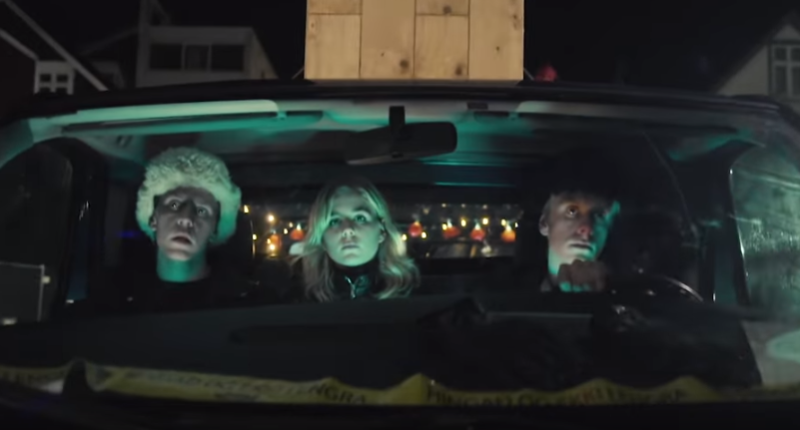We brought you a song from the new Russian.Girls EP Digua just over a month ago, and one thing that makes that record stand out is the sinister air it draws around it. It’s an album of dark, spectral atmospherics, ghost songs wandering between nihilism, fear and creep.
That theme shines through especially clearly on Bíóbabb, the haunted-house disco collaboration with fellow Icelandic producer Kraftgalli. For the video, they’ve come up with a pseudo-religious dark ceremony, as the band use the cover of the Reykjavík night to transfer and dispatch a lost cinema soul from the world of living to dead. It perfectly matches the music’s paranormal vibe – you can imagine all sorts of mysterious events happening soundtracked by Digua, and the Bíóbabb video just provides one possible example.
The band’s Tatjana Dís says:
I was abroad at the time Guðlaugur [Einarsson] sent me the demo of Bíóbabb and as the song spoke to me very clearly visually, I immediately had this idea of a story line. For Icelandic speakers, the lyrics say it all: A guy that can’t go no further as he has no money to go to the cinema. While the lyrics are funny the track itself is in a way very tragic, so I wanted the video to really grab a hold of that. I imagined that the act where he walks away from the cinema, wandering around, without catching a movie, is an on-going cycle and he has reached rock bottom long time ago.
The best thing for his friends to do in this situation, is to do him a favour and bury him to put an end to this on-going cycle he’s stuck in and the chaos his life is. Later when we met with Baldvin (a film maker in Iceland) and explained the idea of the video we had in mind to him, I had no idea of how his vision and skills would turn out to expand my ideas to a level that I was incapable to imagine that would be possible to reach visually in the first place. That video was really meant to be, the moon that welcomed us on the second shooting night is really a proof of that I believe.The video is shot in our second home, the cinema in Reykjavík called Bíó Paradís, which me and Gylfi Freeland both work in and the rest of it is shot in the outskirts of Reykjavík.
Digua is out now on HFN Music.



